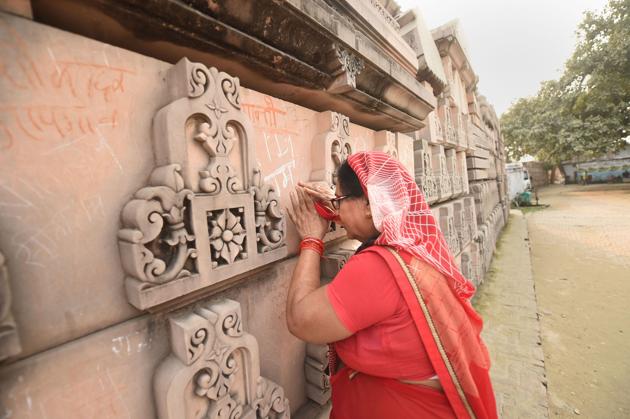In Ayodhya verdict, a 116-page note by a judge on Lord Ram’s birth place
The 929-page unanimous judgment, which analysed the claims in the Ram Janmabhoomi–Babri Masjid dispute case, held title cannot be established on the basis of faith and belief.
Five judges of the Supreme Court on Saturday ruled in favour of Ram Lalla, that represents the child deity and held that a temple should be built at the Ayodhya site by a government-run trust.

The 929-page unanimous judgment, which analysed the claims in the Ram Janmabhoomi–Babri Masjid dispute case, held title cannot be established on the basis of faith and belief.
But there was one judge who felt that there was sufficient “documentary and oral evidence” to support the contention on Lord Ram’s birth place.
The judge who was not named, wrote a 116-page note that accompanies the verdict as an “addendum”. In this, the judge opined that the “faith and belief of Hindus” that the Lord Ram’s birth place “is the place where Babri Mosque has been constructed” is “proved by documentary and oral evidence discussed above”.
WATCH | Will SC Ayodhya verdict alter India’s political landscape?
The judge referred to numerous oral statements, references to the birth place in gazettes and even “scriptures and sacred religious books including Valmiki Ramayana and Skanda Purana, which faith and beliefs, cannot be held to be groundless”.
In the main verdict that political parties hoped would end the decades-old dispute, the Constitution Bench largely relied on evidence that established “consistent pattern of worship by the Hindus in the outer courtyard.” There was no documentary material to indicate either “settled possession or use of the outer courtyard by the Muslims.”
The judgment, however, has not given possession of the 1,500 square yard piece of land that has been in dispute for decades to Ram Lalla. Instead, the top court ruled that this land will continue to remain in the statutory receiver under the central government till the government comes up with a scheme to set up a trust and a formal order is issued. Simultaneously, the court ruled, a suitable plot of land measuring 5 acres should be handed over to the Sunni Central Waqf Board.






